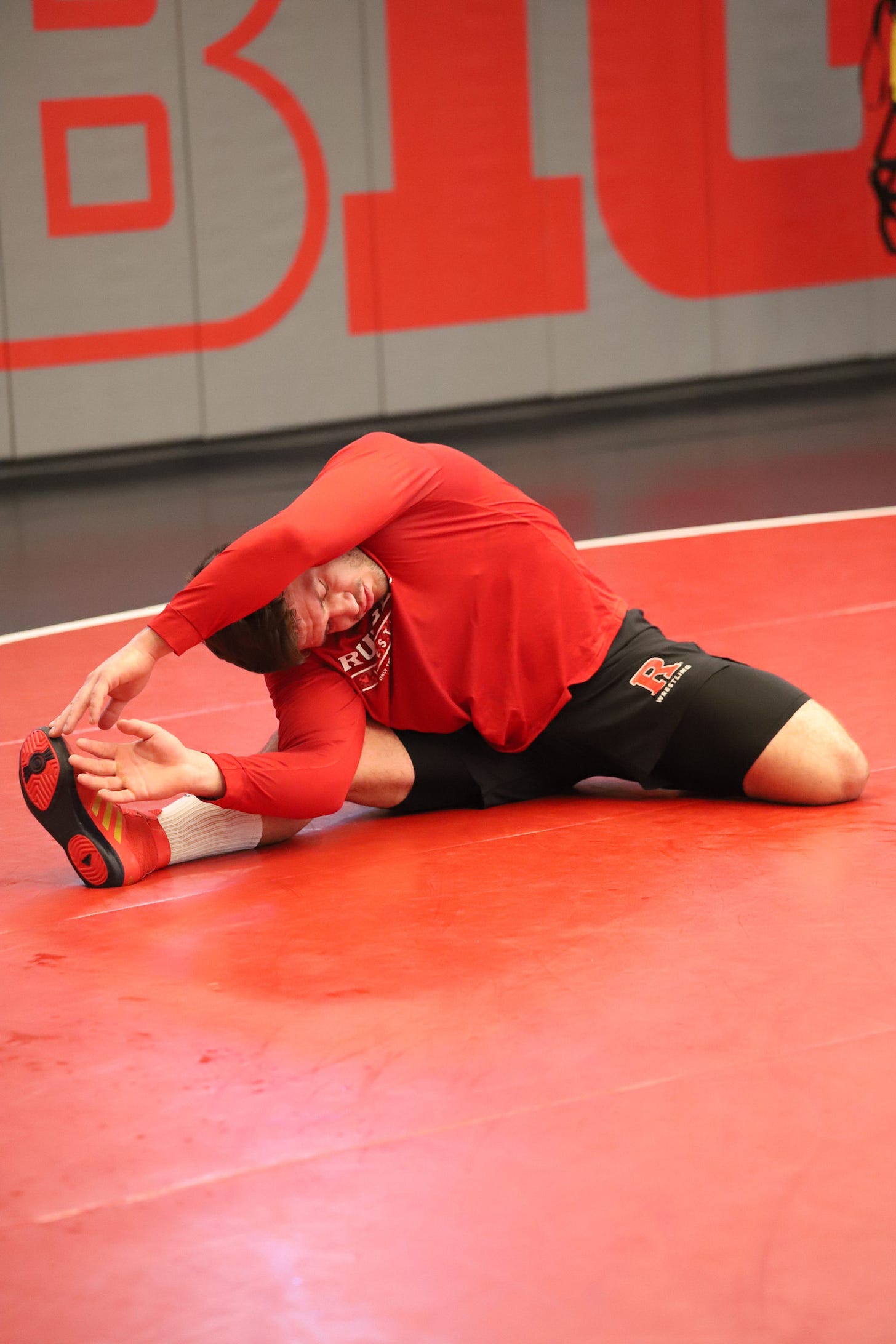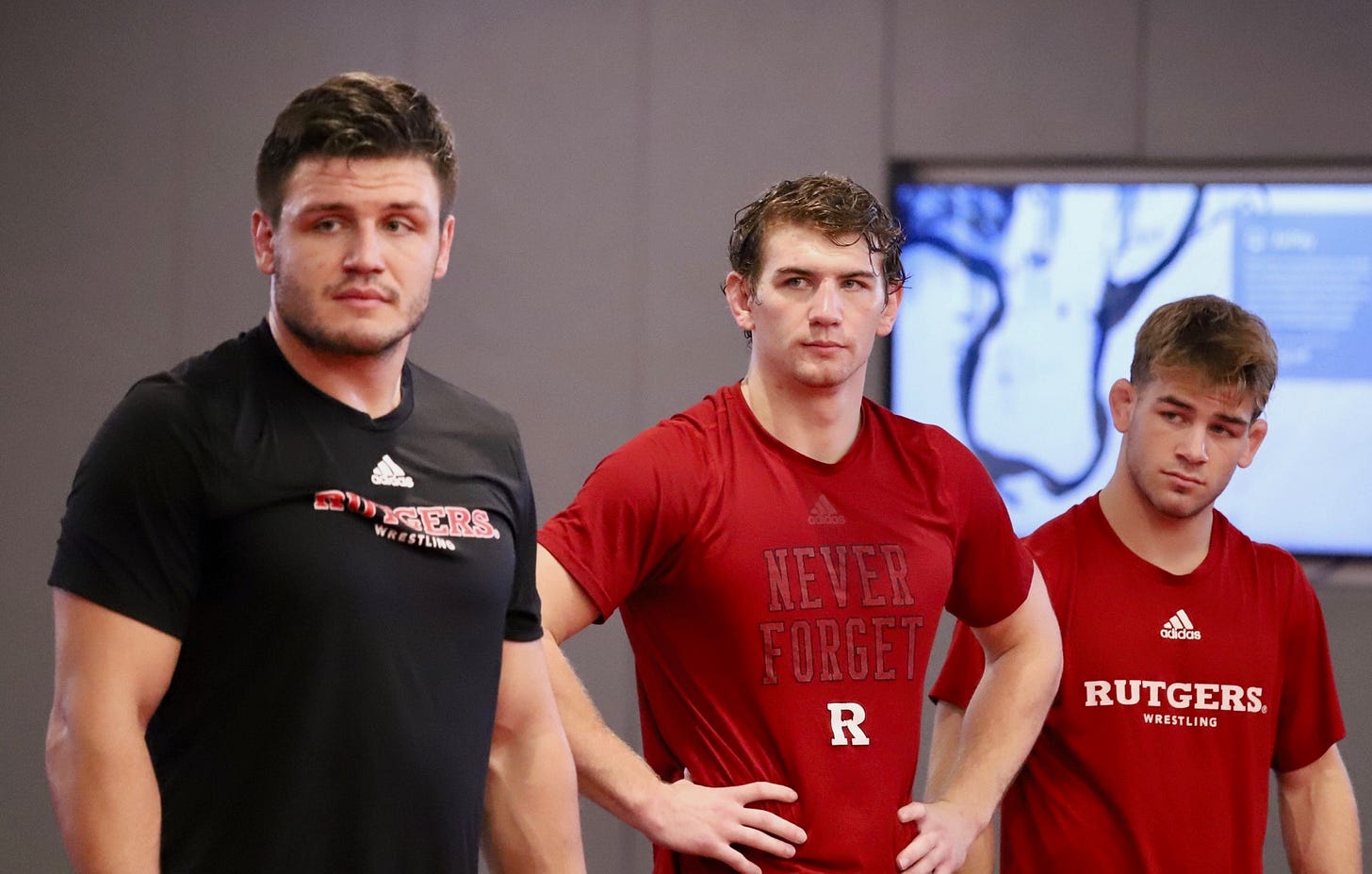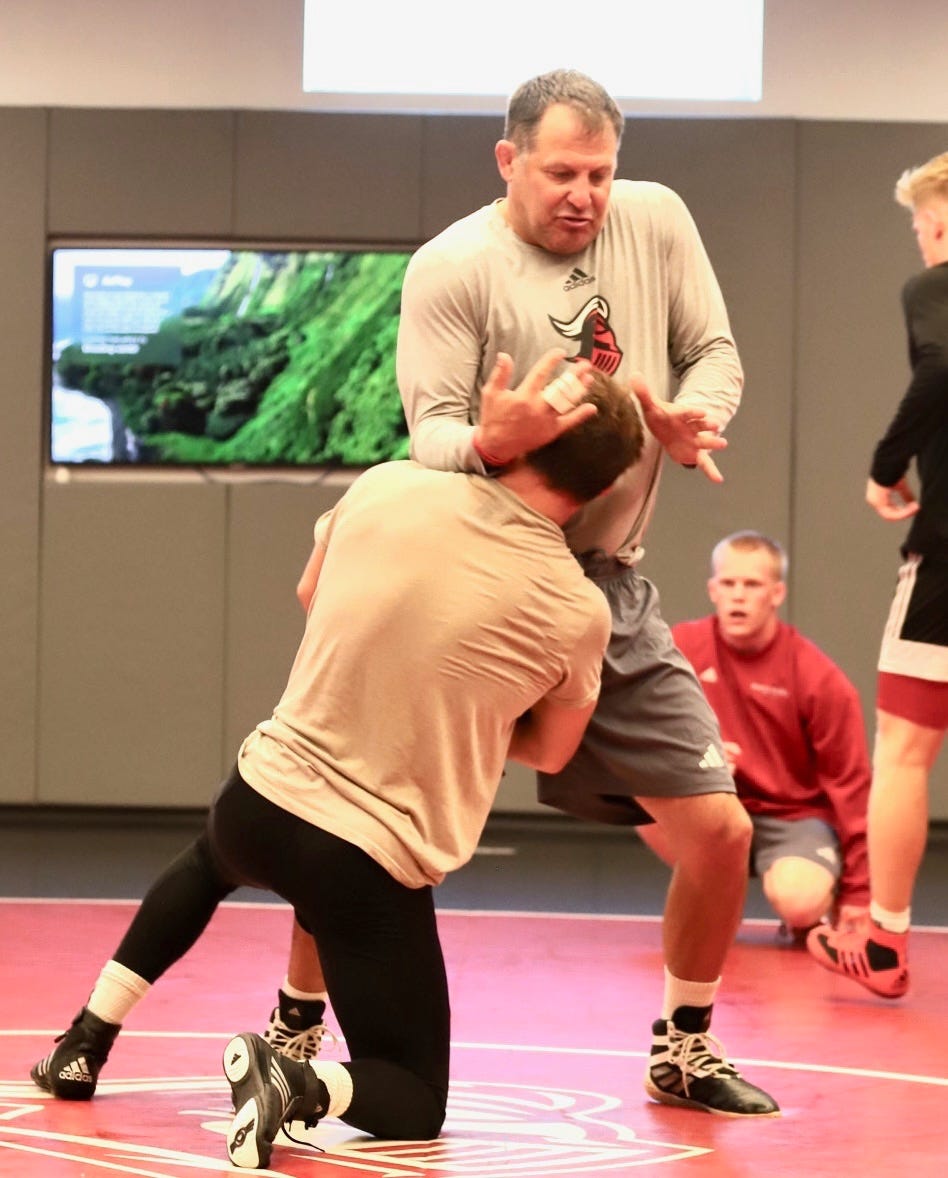Wrestler Spotlight: Yaraslau Slavikouski- Toughness Realized
Perun shrugged, and so did Yara, the story of a young Belarusian who achieved a dream and is working on the next.
"Mental toughness is not just something you can sit in a room and visualize, and all of a sudden, you are mentally tough. The ability to handle physical stress takes us right into the ability to handle mental and emotional stress" (Tolson, 2000, 41)
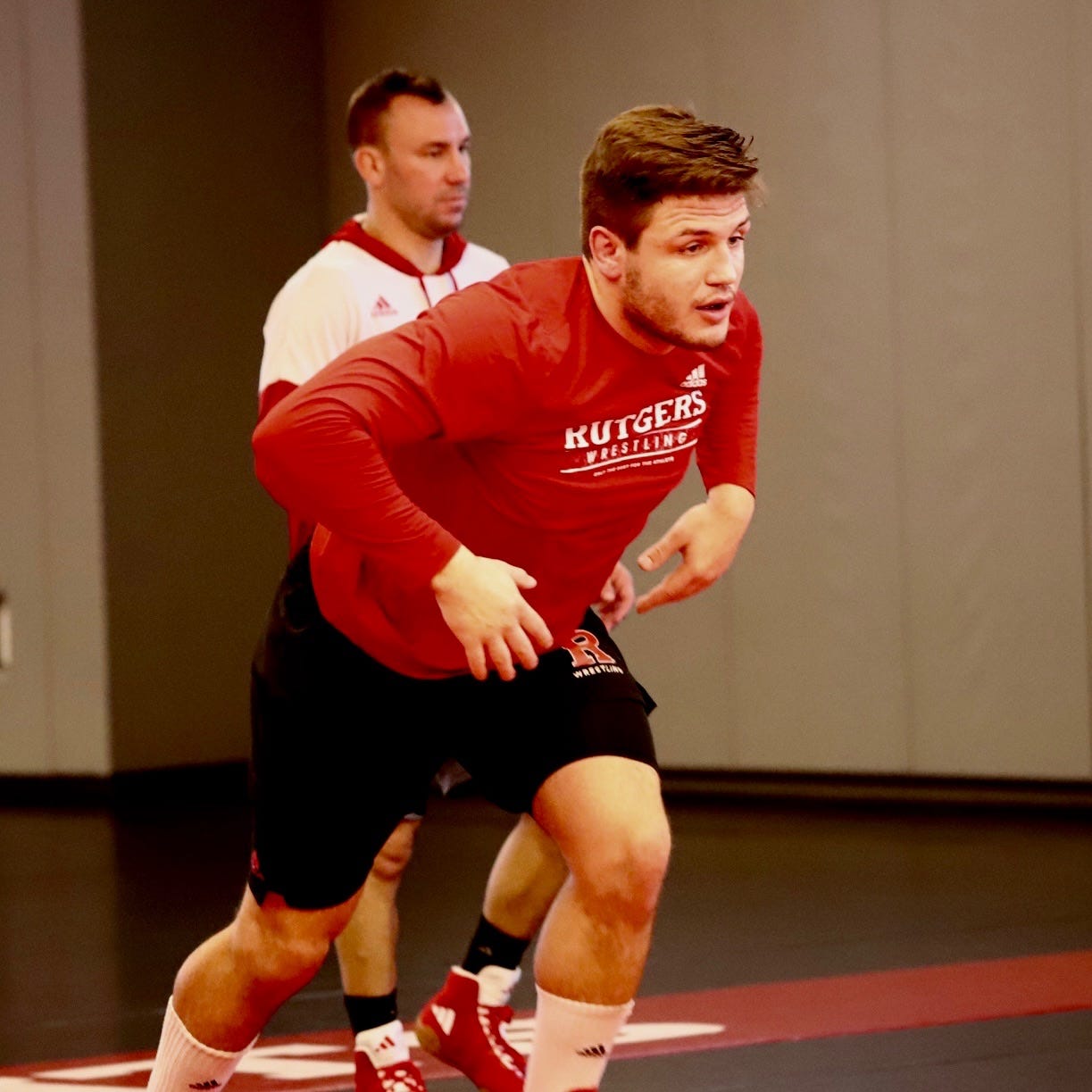
Challenge, difficulty, limit breaking... people compete to measure these attributes against their mind and body. What does the ultimate person look like when they have mastered these and the many other characteristics that contribute to the psyche and heart of an individual? Competition only tests portions of who we are, but the experiences alone go on to enrich our mindset and body. I do appreciate the intensity and psychosis of David Goggins, but I find myself unable and willing to make sacrifices in the areas that make me happy. Wrestling is a grueling sport because of the pain, courage, and humility needed to face an individual in a sport predicated on the physical control of a person.
Yaraslau Slavikouski, the newly transferred Rutger 285-pounder, knows all too well the difficulties of rising to greatness in the sport. He hopes to attain the ultimate glory in his last two years of eligibility. Yaraslau hails from Belarus, where he had an exciting early career dominating in his home country. Yaraslau, looking to push himself, moved to the United States and attended Northfield Mount Hermon in Massachusetts, where he continued success at home and abroad. Yaraslau has competed the last three seasons with Harvard University and has opted to transfer to Rutgers University to complete his master's degree in Supply Chain Analytics and Financial Analysis while wrestling his last two years of eligibility with a Big Ten Team— Yaraslau Slavikouski's wrestling stats.
My first interaction with Yaraslau was as his demonstration dummy during a seminar he led for free at South Brunswick High School. Touching his shoulder reminded me of mahogany, and working with this young man who can achieve greatness that limited people understand was an honor.
It is unsurprising how Yara built such a resolve when growing up in Belarus-- The plight of a country bordering Russia, Poland, and Ukraine carrying all the political baggage associated with the fall of the Soviet Union. Yara started athletics at a young age under the tutelage of his older brother, Valentin, a four-time World Cup and Baltic Games championship kickboxer. He was an honored member of the Presidential Club in kickboxing and Muay Thai. No wonder Yara is so dominant in his educational and physical field.
Yara sat on my couch and reflected on the long hours he and his brother spent talking and engaging in athletics to occupy the time and get the excess energy out associated with being a young man from a divorced single-parent home. He spent the first three years of his life swimming but quickly got into wrestling at nine, where he engaged in both activities six days a week. The Belarusians follow wrestling regimens similar to the Russians, where the most significant focus is on play, gymnastics, mobility, and core fundamentals of wrestling. By the time Yara hit 5th grade, his brother and he started mapping out his future, which consisted of wrestling in the United States.
This full mentorship from Valentin helped his brother prepare for the accolades he eventually received at the end of 9th grade. Yara stated, "The competition in my hometown did not push me in any meaningful ways because I could beat my opponents easily. I went on to win every local tournament, two regional titles, and three 1st place National titles. Even though these weren't my most difficult titles, Valentin insisted on keeping me focused on the eventual goal of wrestling in the United States." Maintaining one's athletic hunger is challenging when you are not pushed accordingly.
Yara's dominance at the National level in Belarus led to his acceptance into the Republican State College of Olympic Reserves. This facility aims to educate and train young prospects for the Olympics—the students' dorm at the facility where they receive a high-quality education and focus specifically on their sport. When Yara was accepted to this program, it placed him on course to reach his goal of wrestling and schooling in the United States. Through Valentin's unrelenting will, the stars aligned in Yara's favor, and his name was brought up to Chris Ramirez, the Head Coach of Northfield Mount Herman (NMH) in Massachusetts. Ramirez (like any good coach or educator), seeing Yara's potential, did everything in his power to get Yara to the States.
Following Yara's success at Prep school, he was accepted into Harvard, where he made it to the blood rounds of the NCAA tournament before transferring to Rutgers University for his Masters in Business. When asked why he moved to Rutgers, he stated that taking gap semesters is not an option for international students. According to Ivy rules, an athlete cannot be enrolled in a Master's program and compete at NCAA level, so the decision was simple. I also want better competition."
Stepping into the Rutgers Athletics Center is a humbling and breathtaking experience as you watch young people in their pre-athletic prime guided by some of the best coaches in the country. Yara met us in the weight room of the athletic center, where we saw a state-of-the-art gym that could provide intelligent biological machines with any number of ways of pushing themselves. The facility is a true testament to the university's emphasis on athletic prowess, in addition to its accolades in the academic sector.
Yara completed an entire weightlifting regiment and led me to the practice room drenched in the sweat of a man who dives head first into the waters of personal difficulty. He informed me that this is one of many two-a-day practices with an interchanging of either weightlifting before or after. Yara says, “I prefer weightlifting after practice.” When asked if there is a difference between open/closed to the public practice, he responded in his usual unwavering stone chin-liked way, “I don’t focus on what's going on outside.” That rings true as I watched him push himself with his training partner, PJ Casale.
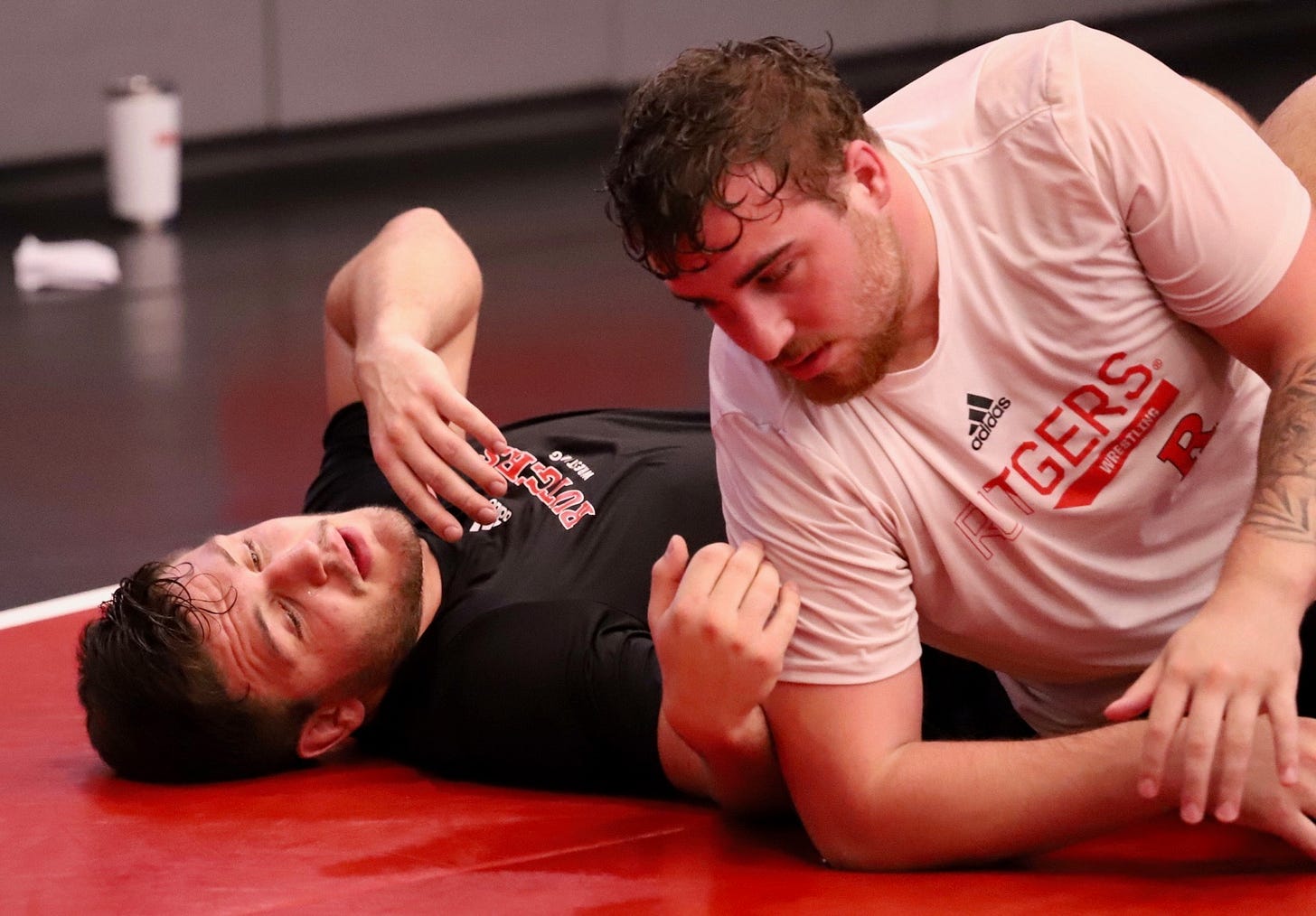
Coach Goodale runs a room that pushes his student-athletes to stay moving. Yara was placed through a series of gymnastic movements and playful tumbles resembling a warm-up one would find in a local teen gymnastics class. The student-athletes were motivated by coach Goodale to walk on their hands as long as possible. He provided constant feedback addressing issues and positively reinforcing philosophies and concepts he has found successful in his long career. I still hear him yelling, “Chase hamstrings!” as I write this article a few hours later.
Coach Gooddale was sweat-drenched as I walked in until he changed his shirt to continue another 90-minute practice. He also finished that 90-minute practice sweat-drenched. Coach Goodale's conversations with his team stuck out to me the most. He resembles the aura of a competent First Sergeant concerning himself with the mission, men, and himself. It is evident in the room that his leadership skills bleed into a staff that shares comparative philosophies but varying approaches, leading to a wrestling room that synchronizes well.
I had the chance to watch Coach Steve Mytych, Assistant Coach, execute a practice centered around precision of movement and technique. He also placed a heavy emphasis on playing in wrestling positions to understand the mechanics of how individuals react to leverage points on the body. His pedagogical practices stem from one of the best coaches in the wrestling world, Cary Kolat.
I could not specifically watch the instructional practices of Joe Pollard and Donny Pritzlaff, who held training for the lower-weight wrestlers, because I focused on Yara; however, I did overhear conversations they had with student-athletes, positively mentoring them on varying topics surrounding school and mindset. They follow the philosophy of coaching the whole student, not just the athlete.
Yara came to my house to conduct this interview and allowed me to watch him train; after spending several hours chatting and eating a lovely dinner, I realized this man was an unstoppable force. He went on to achieve the accolades he earned because Valentin and his hard-working mother raised him to push himself. Yara is about to complete his second to last year in the NCAA and is training to become an NCAA champion. What could stop this young man from achieving the ultimate glory at the college level has nothing to do with his determination, courage, or aptitude. It is like many things that are out of our control, but Yara is willing to make the sacrifices necessary to beat the odds and take away every variable in his control.
Yara's story is important because it shows us that dedication and hard work can lead to beautiful accomplishments when one is willing to show up.
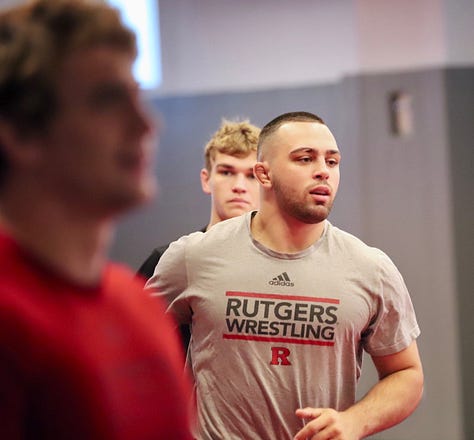
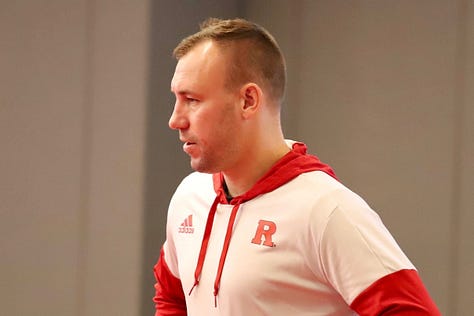
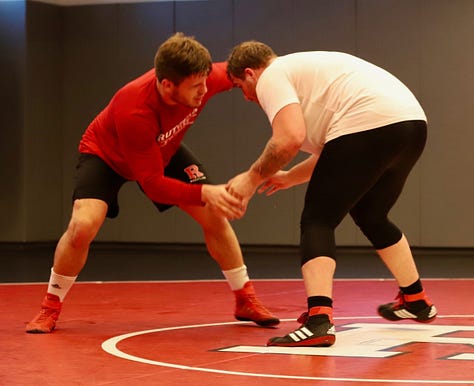
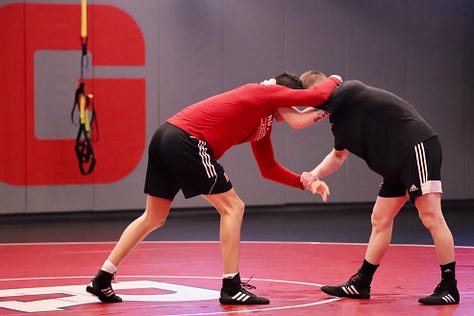
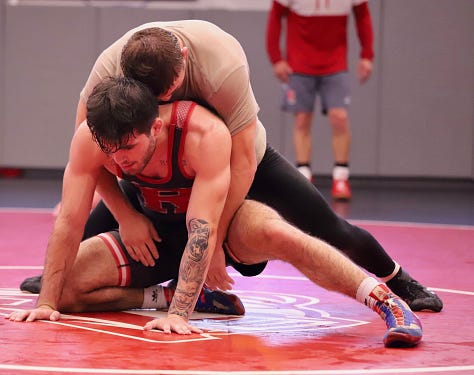
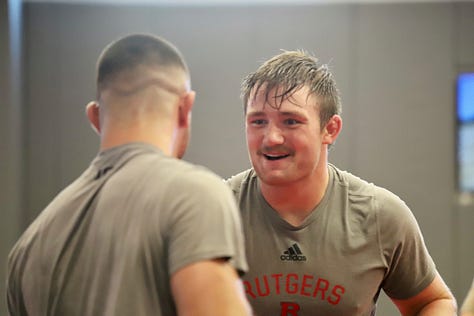

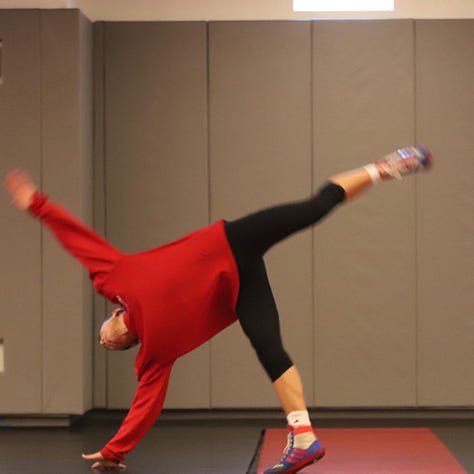
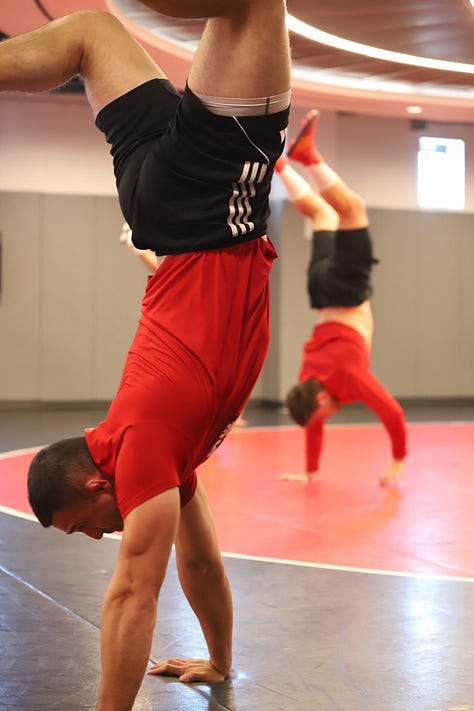
- Coach Cabrera, Nicolas
Owner/Founder Diesel Wrestling Academy
Veteran and Educator Owned
(732) 318-2678
Instagram: @dieselwrestlingacademy
Facebook: Diesel Wrestling Academy
Substack: Nicolas Cabrera
“Toughness is the ability to perform at your “Ideal Competitive State” no matter what the competitive circumstances are.”- Mike Chapman.




